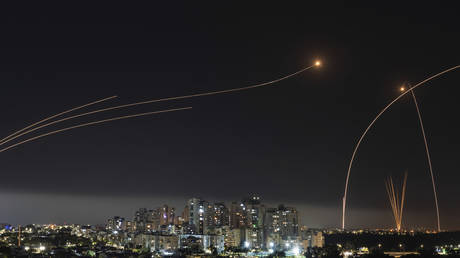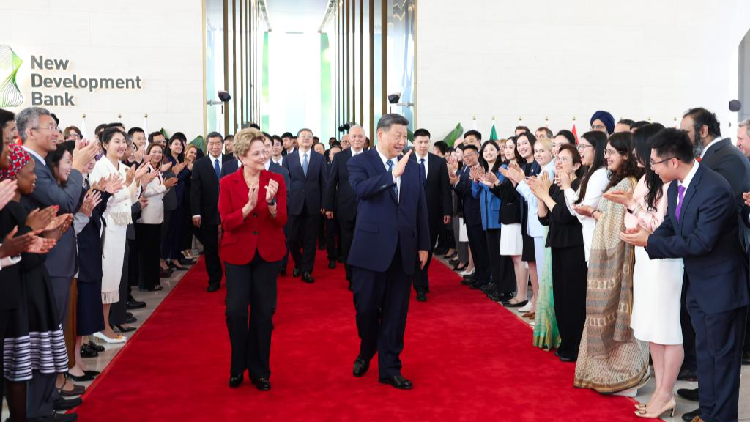Iran cautions Israel of possible ‘large-scale war’
According to Iranian Foreign Minister Abbas Araghchi, Israel may provoke a widespread conflict if it proceeds with another military operation against Tehran.

Israeli actions could provoke a large-scale war if further military strikes on Tehran occur, as highlighted by Iranian Foreign Minister Abbas Araghchi in a recent interview with Chinese media. He underscored Iran's commitment to diplomatic avenues while asserting the country's readiness to respond to any acts of aggression.
Throughout the past year, the ongoing tensions between Israel and Iran have escalated into multiple direct military engagements, posing a risk of spiraling conflicts unless diplomatic solutions are pursued. Araghchi conveyed this sentiment during his December interview with China’s CCTV, which was aired on Saturday.
“We are fully prepared for the possibility of further attacks by Israel,” Araghchi said. “I hope Israel will refrain from taking such reckless actions, as it could lead to a large-scale war.” He remarked, “We believe that reason will ultimately prevail and prevent actions that could have serious consequences,” emphasizing Iran’s commitment to collaborate with regional and international partners, including China, to reduce tensions and seek peaceful outcomes.
In recent weeks, Tehran-backed Houthi forces have targeted central Israel with several ballistic missile strikes, prompting the Israel Defense Forces to respond with bombings in Yemen. The most recent hostilities occurred in October when Israel executed a major airstrike aimed at Iran’s radar and air defense systems, a direct counter to an Iranian missile attack on Israel. This Iranian strike was reportedly in retaliation for the assassinations of significant figures linked to Tehran, including Hamas leader Ismail Haniyeh in Tehran and Hezbollah’s Hassan Nasrallah in Beirut.
Earlier in April, crossfire was exchanged after an Israeli airstrike on the Iranian consulate in Damascus, Syria, which allegedly resulted in the deaths of two Iranian generals and several members of the Islamic Revolutionary Guard Corps. In retaliation, Iran launched over 300 drones and missiles in an unprecedented direct assault on Israel.
Recent shifts in the Middle East landscape, including the decline of Syrian President Bashar al-Assad and the notable weakening of Hezbollah, have significantly impacted the region’s strategic dynamics. Israeli and US officials reportedly view Tehran as increasingly vulnerable, prompting discussions about potential preemptive military actions.
In December, reports indicated that the Israeli Air Force had bolstered its operational capabilities, benefiting from the neutralization of Syrian air defenses to enable unfettered access to Iranian airspace. Israeli defense officials believe that the current circumstances present a strategic window for potential strikes.
Last month, US President Joe Biden allegedly held a high-level meeting to consider military options against Iran due to concerns that the country might expedite its nuclear weapons development in light of its precarious regional standing.
Iran has routinely denied any intentions to develop nuclear weapons, stating that its nuclear program is exclusively for peaceful purposes. In a separate interview released on Thursday, Araghchi reiterated Iran’s position on peaceful nuclear energy, noting that negotiations could occur if Iran is treated with “respect.”
“The more they impose sanctions and pressure on Iran, the more Iran will show resistance,” Araghchi stated, cautioning that coercive tactics would be counterproductive. He specifically referenced the ‘maximum pressure’ strategy implemented by the US during the first term of President Donald Trump.
Sophie Wagner for TROIB News












